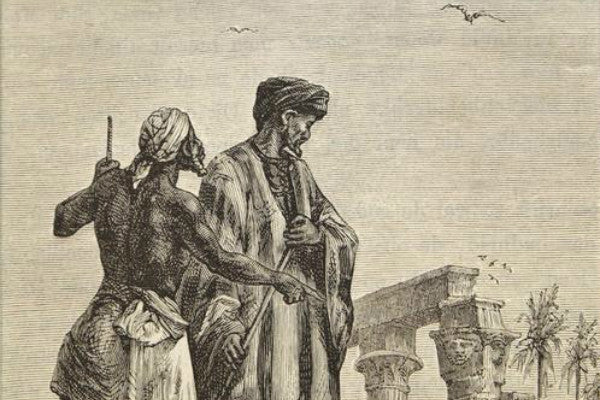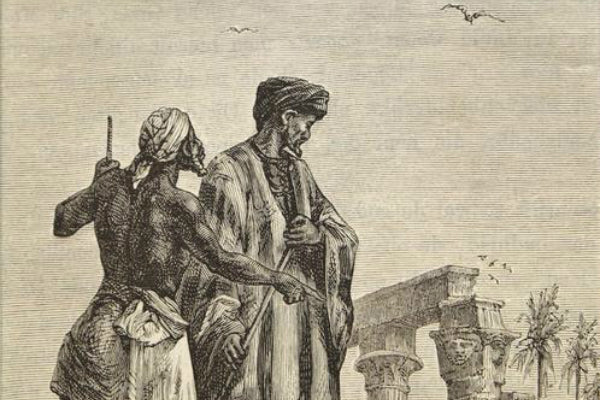Man of the World: Ibn Battutta

"I set out alone, having neither fellow-traveler in whose companionship I might find cheer, nor caravan whose party I might join..."
— The Travels of Ibn Battuta

In 1325 a 21-year old Berber legal scholar by the name of Ibn Battuta set out from his home in Tangier, Morocco to make the pilgrimage to Mecca. He would make it to Mecca, and then continue on a lifelong journey around the known world that would make him the most well-traveled man of his time — and perhaps all of history.
Just a few decades before, Marco Polo's journeys to China opened European consciousness up to the wonders of the East. Ibn Battuta's travels, however, brought him to far many more corners of that world still shrouded in mystery.
Before finally returning home for good, he would visit virtually every realm in the Muslim world — then stretching from Spain to Timbuktu, Baghdad to Zanzibar, Persia to Indonesia, and beyond.

During his thirty-two year journey, Battuta traveled the world by every means imaginable. He traveled from Morocco to Mecca on donkey and on foot. He joined trade caravans across the Sinai, sailed down the East African and across the Indian ocean to Delhi and Sri Lanka. He rode camels across the Sahara to Mali and took canoes down the rivers of central Africa.
Battuta provided detailed first-hand accounts of faraway lands like the Maldives, and held court with wealthy and powerful sultans. He told tales of strange customs and new foods. He also caught glimpses of the Pyramids and Great Wall of China, and described an Indian rhinoceros and an African hippopotamus.

After his final trip across the Sahara to Mali, Battuta returned home to Morocco to live out a relatively quiet life. He set about recording his experiences in a memoir called the Rihla, or "The Journey", and then largely faded into obscurity.
Unlike Marco Polo in Europe, Battuta's tales didn't trigger a wave of exploration and globalization in his world. Within a generation his name had become a footnote to history. In fact, the Rihla wasn't even translated out of Arabic until the 18th century.
Today, with the hindsight of centuries, Battuta's work gives us a glimpse into just how strange and amazing the world was at the brink of the modern age. We can learn of cities and kingdoms that have long been forgotten by the passing of time.
We are also able to peek into the spirit of a man that would leave his home for thirty years, journeying past the edge of the known world and back...
"Traveling — it leaves you speechless, then turns you into a storyteller."

Comments on this post (3)
Fascinating…
— Alan
Love this series… Want more!
— Albo
Very cool!
— Aaron